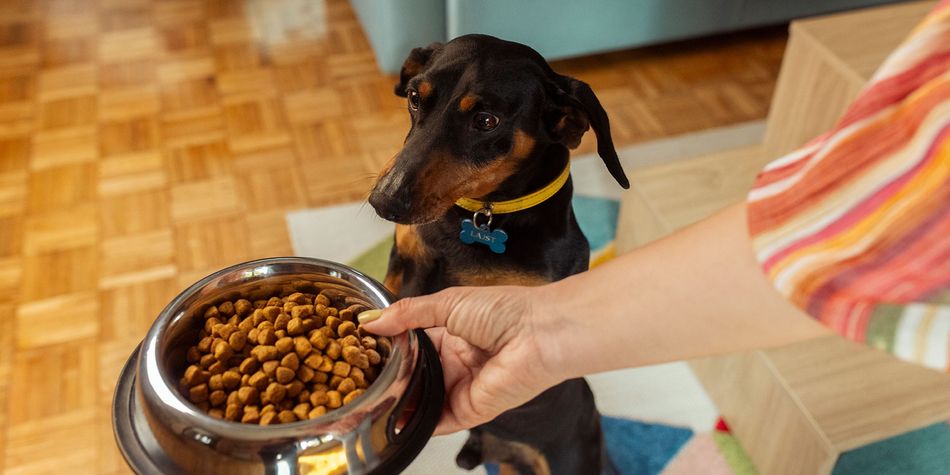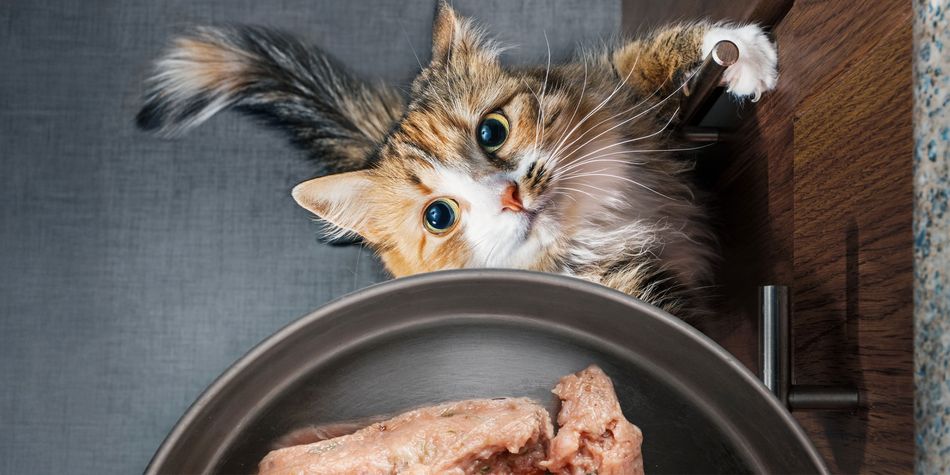Your dog probably doesn't need grain-free food

Interest in grain-free dog food is on the rise.
In our 2025 survey of more than 1,400 dog owners, 22% said they had tried feeding their dog a grain-free diet. Advocates say grain-free diets are gentler on dogs' stomachs, and closer to their 'ancestral' diet.
We spoke to two experts in veterinary nutrition to find out if there's any truth behind these claims. And according to them, there probably isn't.
Best and worst dog food brands – we asked pet owners which brands their dogs love and uncover their favourites
What is grain-free dog food?
Grains are a type of seed that grows on grass-like plants called cereals. Common grains include corn, wheat, oats and barley.
They're typically included in dog food as a source of carbohydrates – although they also contain many other essential nutrients.
Grain-free dog food typically has a lower volume of carbohydrates than dog foods that do contain grain.
It may include carbohydrates from alternative sources, including vegetables and legumes such as sweet potatoes, lentils and peas.
To get the lowdown on grain-free dog food, we spoke with Dr. David Gardner, professor of physiology at the University of Nottingham School of Veterinary Medicine and Science, and Dr. Teresa Hollands, senior lecturer in veterinary nutrition at the University of Surrey, for their expert insight.
Meet the experts
Dr Teresa Hollands is a senior lecturer in veterinary nutrition at the University of Surrey. She has more than 20 years of research and teaching experience in veterinary schools across the UK.
Dr David Gardner received a DSc for his work in nutrition at the University of Nottingham in 2016, and now works at the university as a Professor of Physiology. He specialises in understanding the role of animal nutrition in healthy ageing.
Grain-free dog food and digestive health
Grain-free advocates claim that grains are poorly tolerated by dogs. They say that a number of dogs have grain allergies or intolerances, so these foods upset their stomachs.
They also say there is anecdotal evidence that dogs with sensitive stomachs do better on grain-free diets because they are more 'gentle on the stomach'.
However, there are a few issues with these claims.
‘Grain allergies or intolerances are actually not that common in dogs,’ says Dr. Gardner. 'Diets including grain are generally quite well tolerated.’
According to the 2018 State of Pet Health Report from Banfield Pet Hospital, only around 0.2% of dogs have a food allergy. The most common food allergies in dogs are chicken, beef and dairy.
In addition, both of our experts were confused by the term 'gentle on the stomach'.
'It isn’t a term grounded in scientific literature or research,’ says Dr. Gardner.
‘Your dog’s digestive health is very unlikely to be improved by removing grain from their diet unless they have an allergy or intolerance.’
What about ‘ancestral’ diets?
Another claim made about grain-free diets is that they're superior because they are closer to a dog's ancestral diet – ie, the diet of a wolf.
The idea is that as wolves don't eat grain, it's more ‘natural’ to feed dogs grain-free diets, and therefore it's better for their health.
However, there are a few different issues with these claims.
Firstly, research such as this 2013 study published in Nature suggests that dogs have several genes that support the digestion of starchy carbohydrates, like grains. Wolves don't have these genes.
In addition, it has long been established that dogs produce amylase (the enzyme that breaks down starchy carbohydrates) in their small intestine and pancreas.
‘Although dogs do have the teeth and jaws of a carnivore, they have evolved to eat carbohydrates, including grains,’ said Dr Hollands.
‘Dogs have been domesticated for almost 30,000 years, during which time their genes have changed significantly.’
Is there a link between grain-free food and heart disease in dogs?
In 2018, the US Food and Drinks Authority (FDA) reported that it was aware of a number of cases of a type of heart disease called canine dilated cardiomyopathy (DCM) in dogs not genetically predisposed to the disease.
It noted that many of these dogs were on a grain-free diet that contained a high proportion of peas, lentils, and other legume seeds.
One theory is that grain-free diets may lead to a taurine deficiency, which can be a trigger for the development of DCM.
However, the link may also be coincidental or driven by another factor unrelated to the nature of the diet. DCM is a relatively common condition in dogs, so it makes sense that some dogs with DCM would be on a grain-free diet.
In a 2021 statement on the investigation, the UK Pet Food Industry Association said: ‘The FDA currently has no definitive information indicating that diets under investigation are inherently unsafe […] and there is no information to suggest a similar problem in the UK or Europe.'
The latest FDA statement in December 2022 stated it would not release any further updates unless there was a meaningful development.
Make sure your furry friend is covered – see our guide to the best and worst pet insurance for your dog
Is grain-free dog food healthy?

Grain-free dog food is healthy for dogs with a grain intolerance or allergy.
However, for most dogs, grain-free dog food is not any healthier than a diet containing grain.
The most important thing is that your dog's diet has all the nutrients they need, regardless of the ingredients. For this, look for a dog food labelled as 'complete', which means it will meet nutritional requirements.
On choosing the best and healthiest food for your dog, Dr. Hollands said: ‘The most important thing is to monitor their health day-to-day. Are they sleeping, behaving, and passing stools normally? Is their coat shiny, nose damp and their annual health check is good and they are not getting chubby? If so, it is unlikely that their diet is having a detrimental effect on their wellbeing.'
Should I feed my dog grain-free?
Our veterinary experts did not recommend grain-free food for dogs without an intolerance.
‘I personally wouldn’t feed my dog grain-free,’ Dr. Gardner told us, ‘as I don’t see any clear advantages.'
Ultimately, it comes down to your preference and the advice you receive from your vet.
Remember to talk to your vet before you make any dietary changes – including introducing, re-introducing, or removing grains from their diet.
Unless your dog has an allergy or intolerance, you don't need to pay a premium for grain-free food.
Also a cat owner? See our guide to the best and worst cat food brands
This article uses insights from the Which? Connect panel, collected from research activities with our members. Find out how to get involved



